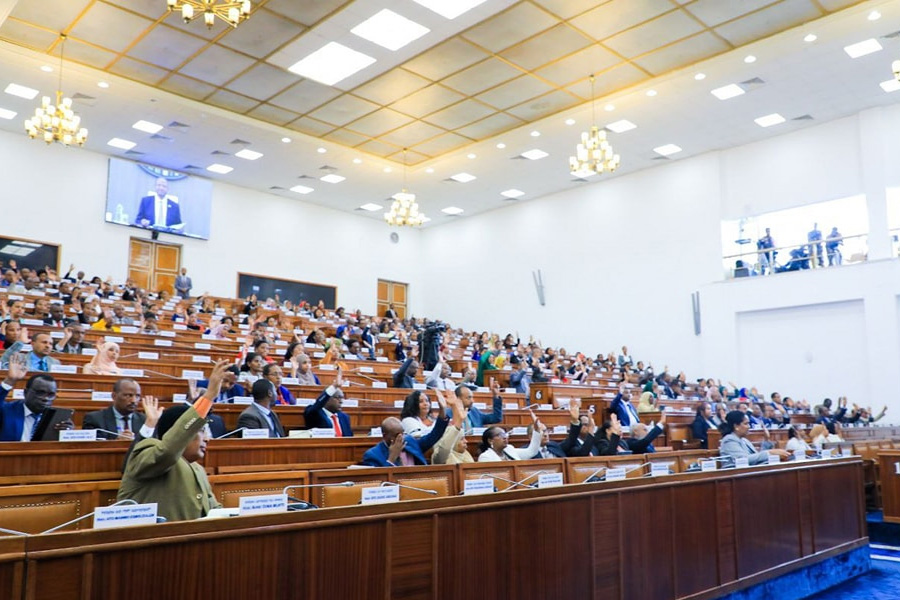
Radar | Oct 06,2024
Dec 17 , 2024

The Parliament has approved a new proclamation that strengthens the National Bank of Ethiopia's (NBE) autonomy, granting it independence over monetary policy and foreign exchange management. The proclamation allows the central bank to exercise its powers and functions and make monetary policy without external interference, limiting the executive branch's influence over the Bank. However, despite its greater statutory independence, the central bank remains accountable to the Prime Minister.
A key provision of the proclamation caps the government's access to central bank financing. The law limits the federal government’s access to credit to temporary overdrafts of no more than 15pc of the average annual domestic revenue from the previous three fiscal years.. These overdrafts must be repaid within 12 months and cannot be rolled over.
The legislation also establishes a financial stability committee responsible for managing bailouts during financial crises.
The new law aligns with the NBE's three-year strategic plan, which the Bank expects will help ensure monetary and fiscal stability. It replaces the 2008 National Bank Establishment Proclamation and redefines the central bank’s powers and responsibilities.
One update in the new law includes raising the minimum paid-up capital of the NBE from 500 million Br to 10 billion Br, a move designed to strengthen the bank’s financial capacity.
While the proclamation increases the central bank’s autonomy, the Prime Minister still retains an influence. The Prime Minister appoints the NBE governor, vice governor, board chairperson, and six additional board members, reinforcing the executive branch’s oversight of the Bank.

Radar | Oct 06,2024

Radar | Dec 04,2022

Radar | May 15,2021

Fortune News | Sep 27,2020

Radar | Sep 14,2025

Radar | Aug 06,2022

Radar | Jul 13,2020

Fortune News | Jan 15,2022

Radar | Jun 15,2024

Radar | Mar 19,2022

Photo Gallery | 174632 Views | May 06,2019

Photo Gallery | 164856 Views | Apr 26,2019

Photo Gallery | 155067 Views | Oct 06,2021

My Opinion | 136699 Views | Aug 14,2021

Oct 11 , 2025
Ladislas Farago, a roving Associated Press (AP) correspondent, arrived in Ethiopia in...

Oct 4 , 2025
Eyob Tekalegn (PhD) had been in the Governor's chair for only weeks when, on Septembe...

Sep 27 , 2025
Four years into an experiment with “shock therapy” in education, the national moo...

Sep 20 , 2025
Getachew Reda's return to the national stage was always going to stir attention. Once...